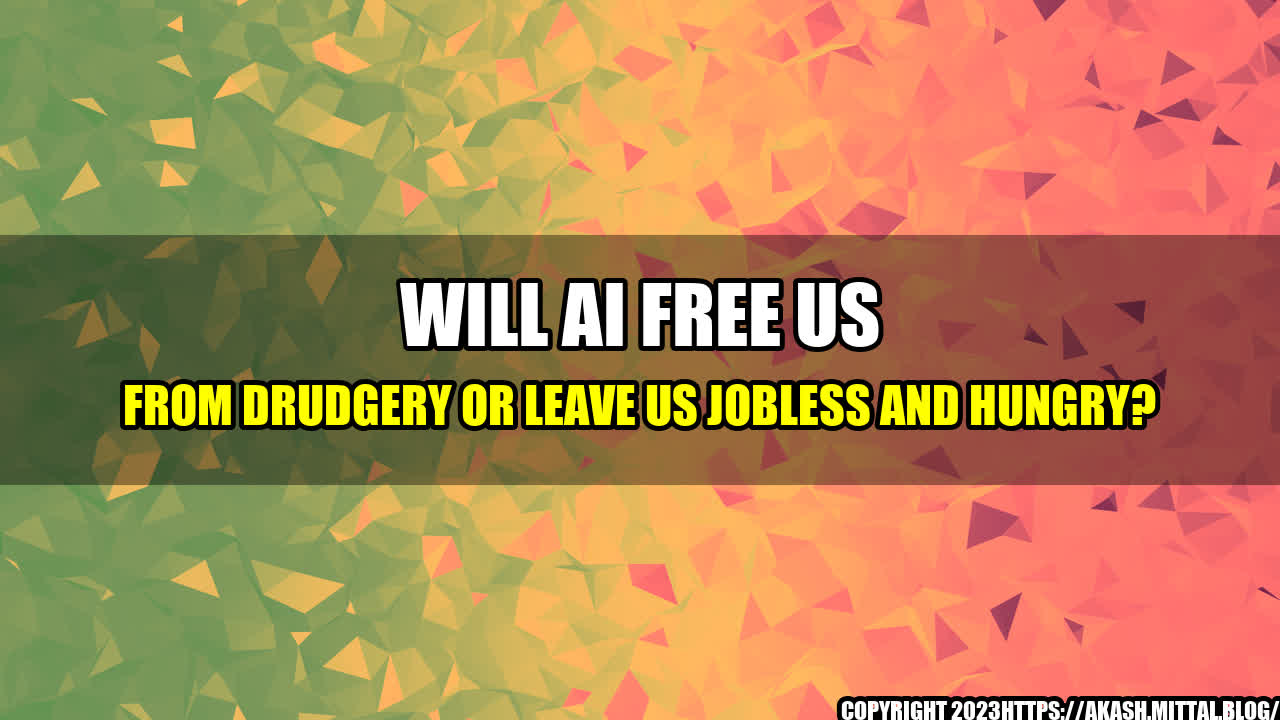It was a humid summer day and I was sitting in a café in downtown San Francisco, waiting for my cup of latte to go. As I glanced around, I saw a young woman sitting at a table with her laptop, typing away furiously. She looked tired and stressed, her eyes fixed on the screen in front of her. It was a familiar sight in this tech hub where everyone seemed to be working on the next big thing.
As I was about to leave, she looked up and caught my eye. We smiled at each other, and I asked her what she was working on. "I'm building an AI-powered chatbot that can help people book flights and hotels," she said. "It's going to be amazing when it's done, but right now it's just a lot of work."
That got me thinking. Will AI really be the savior of humanity, freeing us from drudgery and leaving us with more time to pursue our passions? Or will it be our downfall, making us redundant and depriving us of our livelihood?
The Promise of AI
There is no denying that AI has the potential to revolutionize our lives in many ways. Here are some examples:
- Self-driving cars can reduce traffic accidents and make commuting more efficient, freeing up time for other activities.
- Robots can perform dangerous or repetitive tasks, such as mining or assembly-line work, without risking human lives or health.
- Chatbots and virtual assistants can handle routine customer service inquiries, freeing up human staff to deal with more complex issues.
- AI-powered medical devices can diagnose and treat diseases more accurately, saving time and improving outcomes.
These are just a few examples of how AI can improve our lives, but the possibilities are almost endless. AI can help us solve some of the most pressing problems facing humanity, such as climate change, poverty, and disease. It can also help us unlock new frontiers of scientific knowledge and artistic expression.
The Peril of AI
However, AI also poses significant risks to society. Here are some examples:
- AI could automate many jobs and leave millions of people without employment opportunities, leading to widespread unemployment and social unrest.
- AI could exacerbate existing inequalities by favoring certain groups (e.g. those who have access to the technology) and marginalizing others (e.g. those who don't).
- AI could be used by authoritarian regimes to suppress dissent and monitor citizens, violating human rights and civil liberties.
- AI could become so advanced that it surpasses human intelligence and becomes uncontrollable, leading to a "superintelligence" scenario where humans are no longer in charge.
These risks are not theoretical. We are already seeing the impact of AI on jobs, with many industries being disrupted by automation. We are also seeing the emergence of AI-powered surveillance and censorship tools, as well as the development of "killer robots" that can make decisions to kill without human intervention.
The Way Forward
Given the potential benefits and risks of AI, what is the best way to move forward? Here are three suggestions:
- Invest in education and training: As AI becomes more prevalent, it is essential that people have the skills and knowledge to work with and alongside it. This means investing in education and training programs that can equip people with the necessary skills.
- Ensure a fair distribution of benefits: The benefits of AI should be shared fairly across society, rather than accruing only to a privileged few. This means addressing issues such as job displacement, income inequality, and access to technology.
- Regulate AI responsibly: AI should be subject to ethical and legal frameworks that ensure it is used for the benefit of humanity, rather than being hijacked by powerful interests. This means developing responsible AI policies and governance structures, as well as investing in research on AI safety and control.
These suggestions are just a starting point, but they can help us avoid some of the worst-case scenarios and realize the potential benefits of AI.
"There is no doubt that AI will be one of the most important technologies of the 21st century, but we need to approach it with caution and foresight."
In conclusion, the question of whether AI will free us from drudgery or leave us jobless and hungry is not a simple one. It depends on how we choose to manage this technology and how we decide to use it. If we invest in education, ensure a fair distribution of benefits, and regulate AI responsibly, we can unlock its potential to improve our lives in countless ways. However, if we fail to do so, we risk creating a future that is both dystopian and dehumanizing.

Curated by Team Akash.Mittal.Blog
Share on Twitter Share on LinkedIn